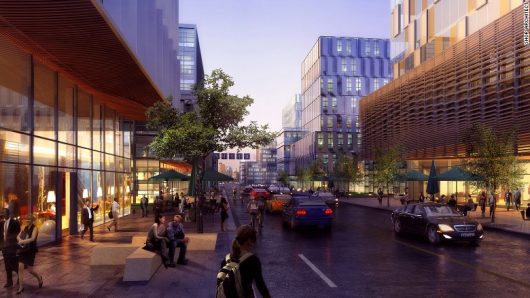Benefits of Smart Cities in Africa

Interestingly, the common perception of Africa doesn’t tend to include sprawling urban metropolises; rather, a person typically visualizes a past version that is an incomplete picture of Africa today. While the majority of Africans still live in rural areas, the continent is one of the most quickly urbanizing regions in the world.
Urbanization
By 2050, 2.5 billion more people will live in cities and almost 90 percent of those people will be from either Africa or Asia. Three African cities have already grown beyond a population of 10 million and are formally considered megacities.
More cities will gain that title in the coming decades. This rapid urbanization provides opportunities for many African nations and their citizens, but it also poses serious long-term problems if not handled properly. With these concerns in mind, several countries have begun developing what has become known as smart cities in Africa.
The Problem with Cities
Many African cities have not been as able to cope as well with the massive increase in urbanization as other cities around the world. Perhaps the most obvious problem is housing. More than 60 percent of the continent’s urban population live in informal settlements where poverty and poor living conditions are rampant.
While the very poor are most affected, African cities’ weak infrastructure affects all of their residents. Some common difficulties that these cities face are:
- Lack of water and electricity due to limited resources, high costs and poor utility management.
- Poor access to sanitation facilities affects urban and rural Africans alike. Only a third of the population of sub-Saharan Africa has access to proper sanitation.
- Heavy traffic congestion that leads to massive daily losses of productivity.
- Difficulty fighting crime and disease, especially in underdeveloped urban areas with high poverty levels.
Developing smart cities in Africa has the potential to help address these problems.
Smart Cities in Africa
Broadly speaking, smart cities aim to use new data-collecting technology and modernized infrastructure to provide safer and more efficient services for their citizens. This can take a variety of forms, many of which have already begun to be used around the continent.
Cape Town is a good example of such a solution. The South African city has partnered with network providers to acquire data from sensors placed around the city. This data helps the city run more effectively in several ways ranging from traffic monitoring to waste management, crime detection and fire response.
Some countries are taking another route toward smart cities by proposing satellite cities — new urban areas built in areas near pre-existing cities. Kenya, Rwanda, Nigeria and other countries all have such projects in the works. Many of these satellite cities would provide thoroughly modern infrastructure and luxury amenities to attract tech-savvy entrepreneurs.
Smart, Safe and Sustainable
While satellite cities have faced some criticism for being created well out of reach of the millions of poor Africans already living in cities, they are only one facet of a movement toward better urban areas across the continent.
Smart cities in Africa are still in their infancy, but they have an advantage. While many cities in the developed world have to maintain outdated infrastructure, African cities can build updated services and facilities from the ground up.
As African economies continue to grow, these modernized cities will be able to make more sustainable use of resources, respond better to crises and adapt to a world racing forward in the field of technology.
While smart cities will not fix Africa’s urbanization problems overnight, they are certainly a step toward both providing better living conditions and being able to compete with other cities around the world in the global economy.
– Joshua Henreckson
